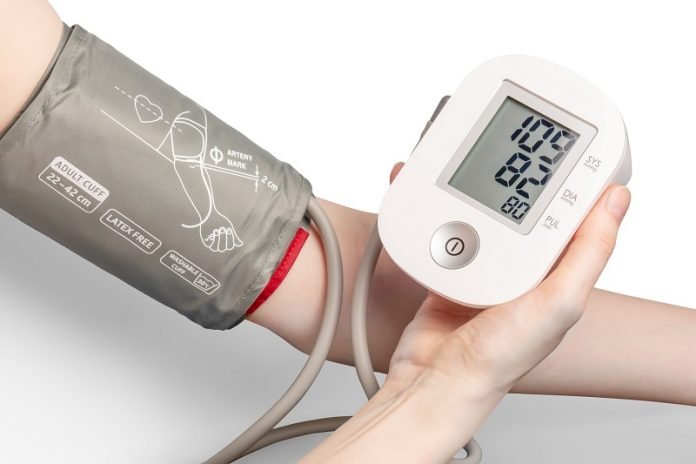
In a new study from Johns Hopkins, researchers found using the wrong size cuff can lead to incorrect blood pressure readings and misdiagnosis.
They found people with obesity – who need large or extra-large blood pressure cuffs – were at particularly high risk for inaccurate readings if using the wrong cuff size.
Nearly half of U.S. adults have high blood pressure, also known as hypertension, though many don’t realize it.
Blood pressure is considered high when the top number – called the systolic – is 130 mmHg or more, or when the bottom number – the diastolic – is 80 mmHg or more.
Having uncontrolled high blood pressure increases the risk for heart and kidney disease, stroke, vision problems, and other conditions.
Clinical practice guidelines highlight the importance of selecting the right size.
The new research focused on the widely used automated blood pressure monitors.
In the study, the team analyzed blood pressure readings for 165 U.S. adults who were 55 years old, on average.
They compared the average of three blood pressure readings using a regular, adult-sized cuff to the average of three readings taken using a cuff tailored to the person’s size.
The team found using a cuff that was too small mistakenly resulted in higher blood pressure readings in 39% of participants while using a cuff that was too large missed 22% of those who did have hypertension.
More than 40% of participants were classified as obese. Those who required a large or extra-large cuff had significantly higher readings when using a regular-sized cuff.
Systolic readings were 4.8 mmHg higher for those needing a large cuff and 19.7 mmHg higher for those needing an extra-large.
The team says it’s important for health care professionals and the public to recognize the importance of cuff size for the clinician’s office, kiosk, and home blood pressure measurement.
For example, cuff size may be even more important in communities with a high prevalence of obesity since large or extra-large cuff sizes may provide more accurate blood pressure readings.
If you care about blood pressure, please read studies about painkiller that can harm your blood pressure, and common high blood pressure drugs may actually raise blood pressure.
For more information about blood pressure control, please see recent studies about teas that may help reduce high blood pressure, and results showing this recommended high blood pressure drug may have dangerous side effects.
The study was presented at the American Heart Association’s Epidemiology and Prevention, Lifestyle and Cardiometabolic Health conference and was conducted by Dr. Tammy M. Brady et al.
Copyright © 2022 Knowridge Science Report. All rights reserved.



